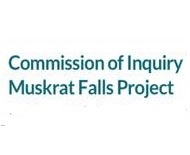The citizens and taxpayers of Newfoundland and Labrador received important news late in 2018: an autopsy of a horrific historic financial debacle (Churchill Falls) and the beginning of an inquiry into the questionable new Muskrat Falls hydro-electric project.
The long legal battle over the Smallwood era’s 1960s unprofitable Churchill Falls contract, that the provincial utility holding company Nalcor entered into for selling hydro-electric power to Hydro-Québec, has ended. The contract stands as is, neither to be renegotiated nor broken. Nalcor is compelled to keep selling power to Québec at 1969 prices until 2041 (prices for Nalcor a tiny fraction of current market prices), when its 65.8% owned stake in Churchill Falls’ output will be free to be sold at market rates.
That is nothing to sneeze at; Churchill Falls’ hydro-electricity generation is mammoth, and the present value of the lost cash flows for Nalcor from selling at the minuscule contract levels rather than today’s market prices is substantial. The foregone free cash now to flow to Hydro Quebec till 2041, representing the loss for Nalcor and Newfoundland Labrador’s ratepayers and taxpayers, is worth billions of dollars.
The additional value of Churchill Falls for Nalcor beginning in 2041, when the 1960s contract ends to the joy of Newfoundland and Labrador’s government and Nalcor’s ratepayers, could end up being crucial in a number of ways. This, because Newfoundland and Labrador is in serious financial trouble, with the still not completed and cost-souring Muskrat Falls project.
The debt Nalcor has taken on to complete the Muskrat Falls generating facility, and the high-capacity line linking it to the Island of Newfoundland, is now expected to be over $15 billion – basically twice the initial cost estimate. Accordingly, the Province has had to borrow more billions to inject billions more in equity into Nalcor to keep it from being insolvent.
When Muskrat Falls is completed, the annual interest on the debt incurred will amount to as much as $500 million per year. And, as bond holders expect to be paid back too, principal repayments on top of the interest due will push the total annual cash outflow from Nalcor and the government will approach a billion dollars.
Of course Nalcor, Newfoundland and Labrador have options. Nalcor could be sold off to investors, presumably to net billions of dollars. Yet, in such a sale, it could undervalue the stake Nalcor now holds in Churchill Falls.
Churchill Falls itself doesn’t need to be sold off for it to be of value to the province in its consideration of its options with respect to getting out from under the Muskrat Falls debt. The present value of the extra future cash flows from Churchill Falls from 2041 forward (possibly over $5 billion), could serve as the collateral the province needs to pledge to the federal government in Ottawa to get some, most, or all of the Nalcor debt bought back and refinanced by Ottawa, with the federal government’s far-lower borrowing costs. A reduction of a full percentage point would mean a lot, given the billions of debt. Ottawa is already committed to Muskrat Falls, having provided a substantial debt guarantee.
The Province has other options: selling off surplus real estate or Crown enterprises; sell mineral rights or hydro-electric development rights to Gull Island – it being another potential generation site near Muskrat Falls; and, a sale of Nalcor (possibly worth $5 billion, if debt-free).
While none of the alternatives set out herein may seem attractive, that is what happens when bad decisions lead to an investment in a project like Muskrat Falls. That investment should not have occurred, as well as signing a contract without an inflator to sale prices (Churchill Falls).
Given the situation that the combination of the contract terms of Churchill Falls – no gain to the Province to 2041 – and the highly questionable decision of the Province and Nalcor to construct Muskrat Falls. Newfoundland and Labrador’s ratepayers and taxpayers‘ best option may be acting on the alternatives, towards lessening their future suffering now brought on them by now-discredited politicians.
Muskrat Falls’s cost might end up $15 billion (including financial costs); it’s original estimate was $6.2 billion. This would push rates for Newfoundland and Labrador ratepayers to $0.22 per kWh, nearly double basic electricity rates elsewhere in Canada.
If Muskrat Falls’ debt load is to be erased or lessened, towards avoiding the prospect of a 22 cents per kWh. electricity rate, then the options noted above and other feasible approaches should be investigated. The long-suffering people of Newfoundland and Labrador are owed such an effort. It may be hard to avoid selling off Nalcor; but it could be a blessing in that politicians will find it nearly impossible to screw it up again once it is independent of them.
Ian Madsen is a senior policy analyst with the Frontier Centre for Public Policy.



